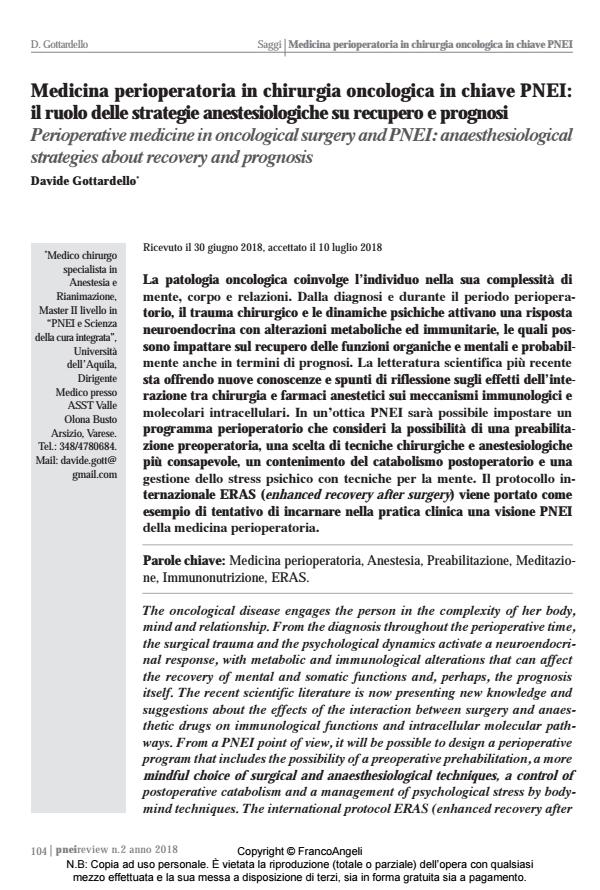Perioperative medicine in oncological surgery and PNEI: anaesthesiological strategies about recovery and prognosis
Journal title PNEI REVIEW
Author/s Davide Gottardello
Publishing Year 2018 Issue 2018/2
Language Italian Pages 13 P. 104-116 File size 1145 KB
DOI 10.3280/PNEI2018-002008
DOI is like a bar code for intellectual property: to have more infomation
click here
Below, you can see the article first page
If you want to buy this article in PDF format, you can do it, following the instructions to buy download credits

FrancoAngeli is member of Publishers International Linking Association, Inc (PILA), a not-for-profit association which run the CrossRef service enabling links to and from online scholarly content.
The oncological disease engages the person in the complexity of her body, mind and relationship. From the diagnosis throughout the perioperative time, the surgical trauma and the psychological dynamics activate a neuroendocrinal response, with metabolic and immunological alterations that can affect the recovery of mental and somatic functions and, perhaps, the prognosis itself. The recent scientific literature is now presenting new knowledge and suggestions about the effects of the interaction between surgery and anaesthetic drugs on immunological functions and intracellular molecular pathways. From a PNEI point of view, it will be possible to design a perioperative program that includes the possibility of a preoperative prehabilitation, a more mindful choice of surgical and anaesthesiological techniques, a control of postoperative catabolism and a management of psychological stress by bodymind techniques. The international protocol ERAS (enhanced recovery after surgery) is presented as an example of how a PNEI view of perioperative medicine can be translated into clinical practice.
Keywords: Perioperative medicine, Anaesthesia, Prehabilitation, Immunonutrition, Meditation, ERAS.
Davide Gottardello, Medicina perioperatoria in chirurgia oncologica in chiave PNEI: il ruolo delle strategie anestesiologiche su recupero e prognosi in "PNEI REVIEW" 2/2018, pp 104-116, DOI: 10.3280/PNEI2018-002008